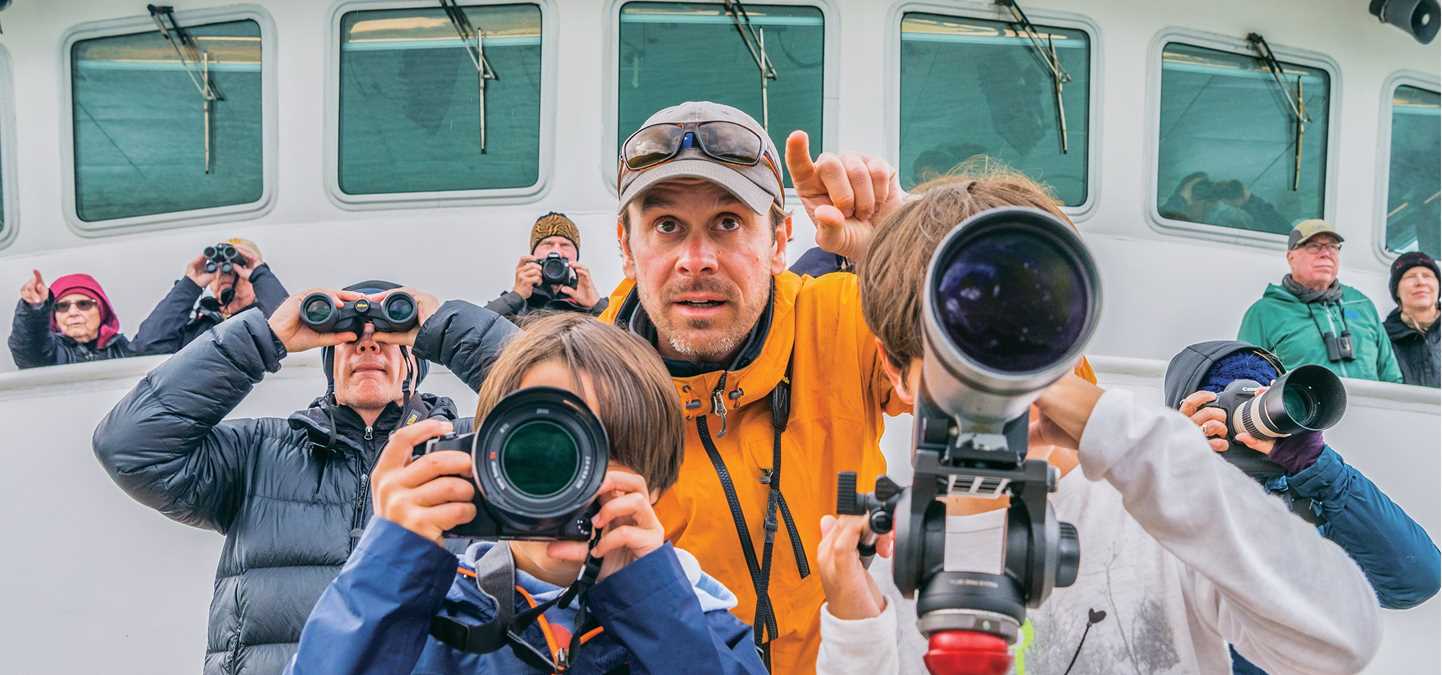Photo
Certified Photo Instructor
Photography is at the core of everything we do—after all, Sven Lindblad, our founder, began his career as a wildlife photographer. To help our guests take the best possible shots, a specially trained certified photo instructor joins every voyage to offer assistance with all of your photography needs, from camera settings to composition. Their goal is to help guests become better, more confident photographers—and to help them go home with amazing shots that tell the story of their journey.
Our photo instructors are also trained naturalists, which gives them advantage when it comes to photographing the natural world. They are well-versed in animal behavior and can coach guests as they prepare to photograph a bear fishing for salmon or a pod of killer whales on the hunt.
Photography is at the core of everything we do—after all, Sven Lindblad, our founder, began his career as a wildlife photographer. To help our guests take the best possible shots, a specially trained certified photo instructor joins every voyage to offer assistance with all of your photography needs, from camera settings to composition. Their goal is to help guests become better, more confident photographers—and to help them go home with amazing shots that tell the story of their journey. ...
Read more
Meet our Photo Instructors
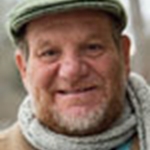
Steve Morello
Steve Morello has had a long and colorful career in the natural history world. Born in New Jersey, he was lucky to be able to summer on the shores of Cape Cod. Whether it was exploring the tidal pools, snorkeling along the beach, or hiking in the dunes, it all came together to instill in him a deep connection to the natural world. It was no surprise that he would return to the Cape as a whale researcher in his adult years. It was on the Cape that Steve first became involved in guiding, and for 15 years acted as naturalist on whale watching boats in the Gulf of Maine. Steve worked with groups creating environmental education material for school programs and soon found another one of his passions, photography. Well known as a professional wildlife photographer and guide, Steve’s work has appeared in countless publications, including National Geographic magazines and books, The New York Times , and photo collections of the World Wildlife Fund. Steve has written numerous magazine articles on the subjects of travel and nature photography. He is the author of The Traveling Nature Photographer , which has been acclaimed as a must-have for anyone who travels and is interested in photography. Although now a photographer more than anything else, he stays active in the research field and is on the Board of Directors of the Alaskan Whale Foundation, where he assists on research of the whales of Southeast Alaska. Steve is also working on a new project off the coast of Peru where sustainable tourism, scientists, and local fishermen will be working together to conserve a newly created marine sanctuary.
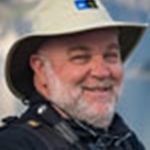
Doug Gould
Travel and adventure were an integral part of Doug’s upbringing in a small town on the south shore of Long Island, New York. Growing up on the Great South Bay, his family claims Doug learned to sail before he learned to walk. Whether it was camping, sailing, birding, traveling across country or spending most of fifth grade living in Europe, Doug’s formative years left him with a love of wildlife, the outdoors, and a desire to keep moving. After receiving a B.A. in dramatic arts from the University of California, Santa Barbara, Doug mixed a short career in the film and TV industry with two summers working for the Catalina Island Harbor Patrol, which led to his owning the third largest private marine rescue company in California. Doug sat on the Board of Directors of the Vessel Assist Association of America for three years and has lectured extensively to the marine assistance industry about safety and risk management. In 2003, he volunteered to work for Oceanites as a member of their Antarctic Site Inventory wildlife census team (aka: a penguin counter). This opportunity included numerous trips to the Antarctic Peninsula over the span of three seasons. The Antarctic Site Inventory focused on gathering data about the impact of tourism on Antarctic wildlife, and helped to develop some of the Antarctic Treaty recommendations that govern tourism today. Since 2011, Doug has worked full time as a naturalist, photographer and expedition leader, working primarily in the polar regions. In 2015 he joined Lindblad Expeditions, and continues to share his enthusiasm for travel and adventure as an expedition leader and certified photo instructor.
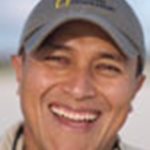
José Guerrero
José Guerrero Vela is an Ecuadorian permanent resident of the Galapagos. His mother was born in the islands and his grandfather was one of the first generation of teachers in the Galapagos, which has always inspired him to promote education as the main path to protect the archipelago. He became a Galapagos naturalist guide in 2008. He has since been part of the Australian Awards Scholarship program which allowed him to complete an interdisciplinary Master´s degree in Applied Anthropology and Environment at the Australian National University in Canberra, Australia. He has represented the Galapagos in various international events in Australia, Canada, India, Bolivia and Germany. His research on the relationship between humans and sea lions in the Galapagos achieved the prize for best master student paper at the International Symposium of Natural Resources and Society in Hanover, Germany. In Galapagos, Jose has worked with the Charles Darwin Research Station, the Galapagos National Park Service, WWF and the Galapagos Governing Council, in several projects related to sustainable development and community-based conservation. As part of the Lindblad-National Geographic team, he travelled to Washington DC to be trained in the National Geographic headquarters as a Certified Photo Instructor. Additionally, he is also part of a team of naturalists that became Certified National Geographic Field Educators, which increased his interest in outdoors learning and educational strategies to engage with families and groups of all ages.
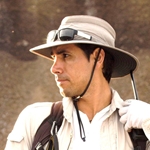
Socrates Tomala
Socrates was raised on Santa Cruz Island located in the heart of Galapagos Archipelago. He had a childhood filled with swimming, scuba diving, rock climbing and volunteering in conservation projects, so it was natural for him to grow very passionate about the outdoors and the natural world. Throughout his life Socrates has been involved in science, from tagging Pacific Green Sea Turtles to placing transmitters on sharks to track their migration across the Eastern Tropical Pacific. Socrates has spent most of his life close to the Ocean which made him very aware of the environmental challenges caused by our growing presence on the planet, he has since a young age collaborated with the Charles Darwin Research Station on conservation projects that aim to maintain the delicate balance between Nature and Humans on the Galapagos Islands. He studied Biology at the School of Environmental Sciences at Universidad de Guayaquil and later decided to pursue his passion for nature by becoming a licensed Naturalist guide in the Galapagos, working and living there since. Socrates has been documenting the natural world through his extensive travels with his camera to create awareness about our planet to citizens of the world. Socrates lives with his wife and three border collies in Mindo, a small village hidden in the lush and green cloud forest formed by the Pacific Ocean Cloud meeting the Andes Mountains. When he is not leading Expeditions in the Amazon or the Galapagos you can find him hiking into the clouds, photographing exotic birds, surfing, swimming in a river or learning how to play an unconventional music instrument.
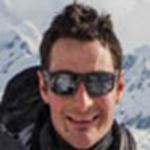
Jamie Coleman
Jamie is from England. He grew up in Oxford, about as far from the sea as you can get in the UK, yet somehow decided he would work in marine biology and conservation. Ever since he reached his teens, he has dedicated time to this passion, working and volunteering in various roles on nature reserves and in aquariums. It was no surprise that in 2007, he left home to study marine biology at the University of Newcastle. As much as he loves working with people, he has a habit of ending up in isolated inhospitable havens, far from civilization. Ever since he spent two years on the Farne Islands, UK – an archipelago home to 150,000 seabirds and 5,000 grey seals he has developed an obsession for seabirds and seals. Most recently, he has completed his second stint (total 2 years) living amongst the seals and penguins of South Georgia working for the British Antarctic Survey. His work there mainly focused on long term population and diet monitoring of penguins, albatross and Antarctic fur seals, but he also worked on various tagging projects. He has also lived on an uninhabited island on The Galapagos tagging and monitoring Sea lions. He has successfully used his love for the environment to travel the world and avoid returning to the UK, most noticeably running a jaguar camera trapping project in the Pantanal, Brazil. Other roles include diving and coastal research in the Bahamas and Mexico, where he was researching marine protected areas and sustainable development. Keen to spend as much time at sea as possible, his work has always been interspersed with periods on board vessels in seabird and marine mammal observation roles.
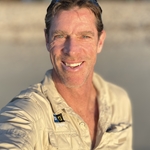
Andrew Peacock
Andrew was born in Adelaide, South Australia and (mis)spent his youth surfing and kayaking in the ocean, as is the case for many Aussies! After graduating from medical school, he spent a year working as a surgical resident in Santa Barbara, California where he also began rock climbing. Taking up this new activity with a passion, Andrew began to explore the mountainous regions of the world and volunteered his medical skills in Nepal and India where he has since led numerous treks. Documenting his experiences with a camera led Andrew into the world of professional photography and he began contributing photos to what was then the Lonely Planet image library. So began a ‘sideline career’ using the creative side of his brain. In the years since Andrew has carved out a unique niche for himself as an expedition and wilderness physician, expedition leader, and nature photographer with multiple journeys across all of the continents. His images are published widely for commercial use and Andrew enjoys nothing more than combining his outdoor adventure and leadership skills with medical and/or photography work in far-flung locations of the globe. In 2017 he spent a month as a volunteer medical ranger with the National Park Service in Alaska high on the slopes of Denali, North America’s highest mountain.
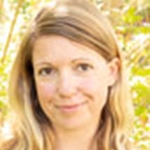
Lauren Buchholz
Originally from the San Francisco Bay Area, Lauren’s wanderlust has taken her from the Appalachians to the Rockies to the Southern Alps. Her passion for conservation and the great outdoors fueled her early career as a naturalist at Sequoia National Park. After graduating with a degree in environmental writing, Lauren joined Colorado Parks and Wildlife and moved to Gunnison to serve the southwest part of the state. She spent almost two years exploring and engaging with communities in this rugged region and enjoyed fringe benefits like wrangling pronghorn antelope and tagging mountain lion cubs. In 2013, Lauren took a four-month solo road trip around New Zealand and left her heart in the country. She later returned to work for the Department of Conservation, where she was dedicated to protecting some of the country’s most endearing and threatened species. If you’ve wondered what it’s like to hold a kiwi, where to find the world’s only alpine parrot, or what makes a wrybill unique, pay her a visit. After several years of dividing her time between the northern and southern hemispheres, Lauren now makes her home in western Colorado, supporting local conservation projects and spending as much time adventuring in the mountains as possible. Lauren’s work has appeared in publications such as Outdoor Photographer and Landscape Photography Magazine. She looks forward to visiting some of the world’s most incredible destinations with her fellow teammates and guests of Lindblad Expeditions, and she’s keen to share her photography passion and experience to help make your journey even more memorable.
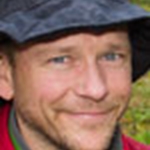
Sean Neilson
The summer after Sean graduated from college, he waited tables in Yellowstone to delay entering “the real world”. It was there, in the unending beauty of such a special place, where he realized the natural world was the real world—and it had captured him. Several years and a second degree later, Sean found himself helping visitors with their bird lists rather than their menu selections as a ranger with the National Park Service. After several adventure-filled years at Yellowstone he sought an even bigger and wilder landscape in Glacier Bay, Alaska. For the next 15 years, Sean worked as a ranger and naturalist for Glacier Bay National Park. While working in Southeast Alaska, Sean put down deep roots in the small bush community of Gustavus, adjacent to Glacier Bay. Here, he has built a handcrafted home where he lives with his wife and two children. Sean is passionate about sharing the natural world with his kids, and others as well. This passion dovetails nicely with living a subsistence lifestyle. Whether it’s hunting deer, fishing for halibut and salmon, tending the garden, or gathering mushrooms and berries, Sean spends as much time as possible outside in the wet and wild country that is Glacier Bay and Icy Strait. While at home, he keeps plenty busy fixing things that his kids break. Sean’s other passion is photography, which allows him to share the beauty of the natural world with others while providing an outlet for his creative expression.
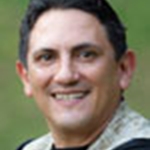
Carlos Calvo Obando
Carlos is a freelance wildlife photographer and photography instructor from Costa Rica. Passionate about travel and education, he also works as a certified naturalist guide on the beaches, jungles, and mountains of that beautiful tropical paradise. With 20 years of experience leading groups and making images and portraits of Costa Rican creatures and landscapes, he loves to share his knowledge and tricks with enthusiasm, simplicity, and a good sense of humor. It is not a surprise that throughout the years he has led many different photography tours, of different levels from beginners to advanced, for prestigious local tour operators as well as his own private photo tours and workshops. He has been very successful in combining his expertise as a naturalist guide with his skills in outdoor photography. He will help you find elusive and well-hidden wildlife (as well as the most common ones of course) and suggest the best techniques for you to get the shot! Carlos believes photography is a field where you can learn something new every day (just like in most aspects of life). He is constantly challenging himself not only to shoot better, more impactful images, but also to share that knowledge to improve your own picture-taking experience and final results. When not on tour, he lives in San José, Costa Rica, enjoying a peaceful life with his wife Alexandra, his daughter Sofía, and his son Sebastián, while appreciating spicy food and watching soccer games. He has published different calendars and postcards on his own, and he is currently working on a book about Costa Rican hotspots for Wildlife Photography. Some of his work has been exhibited in local museums and galleries.
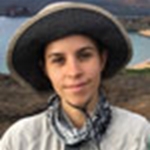
Anahí Concari
Anahí grew up in a small house by the beach in the Galápagos Islands. Along with her best friend, she used to wander during the days around mangrove trees, becoming a different animal every day. She used to camp on solitary beaches, snorkel with sharks, dive with her uncle, a local dive instructor, and sail around the islands with her free spirit neighbors, learning about nature with her own hands, eyes and ears. With her mother working at the Charles Darwin Foundation, she had the opportunity to spend time with brilliant scientists during lunchtimes and to volunteer with various scientific projects, like the sea turtle monitoring program being held each year during nesting season. Passionate about art, she pursued a career in literature and music on mainland Ecuador. As soon as she got her degree, she came back to her islands and volunteered at the Charles Darwin Foundation, helping in the Exhibition Hall. Anahi also worked in the community as a radio DJ, playing jazz and classical music, and she continues to do so, however now with friends, on a Friday night rock radio show. Learning about Galápagos through her constant reading and attending the National Park Naturalist guide’s training course, made her a licensed naturalist guide in 2017; and Anahi considers it the best job in the world! She is interested in the evolutionary role of the Galapagos Islands and is also passionate about stars, so be sure to accompany her one evening on the upper deck for star gazing. She is a die-hard fan of the Beatles, Carl Sagan and David Attenborough.
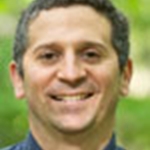
Dave Katz
Dave grew up in a village in the heart of the rural Finger Lakes region of New York and at an early age fell in love with the outdoors. Dave’s mother, a high school earth science and biology teacher turned weekend hikes into informative lessons. The beautiful gorges, various lakes and hard wood forests made a lasting impression on him. At university, he continued to pursue his growing interest in the natural world through study of Geology and Ecology. At this time, he joined the Outdoors Club and began leading caving, rock climbing and winter camping trips with fellow students. After obtaining a bachelors degree in Geology at Binghamton University, he set out to explore the world, working seasonally as a wilderness field instructor while in the offseason pursuing a growing interest in photography and storytelling. Inspired by the desire to explore and learn, his prolific travels have drawn him to over 85 countries on all seven continents. His storytelling work has been published on television, in print and on the internet with HBO, Nat Geo Kids, PBS Nature and Outside Magazine. Identifying strongly with the concept of “Tenacity in Pursuit,” he aims to inspire curiosity through his work as a field educator and professional storyteller. Since 2004, he has led over 20 exploratory tree climbing expeditions to forest canopies around the world through his work with Cornell University’s Tree Climbing Institute. Always excited and ready for the next location, challenge or project, he is a proud member of the Lindblad-National Geographic Expedition Staff team.
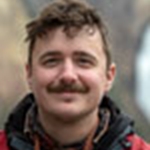
Nathan Kelley
Nathan Kelley developed his love for nature as a kid at his family’s cabin in Northern Wisconsin. Family fishing trips, camping, hiking and a trip to his first National Park in the Everglades, all vigorously shaped his passion for the natural world. After graduating with a degree in Cinema and Photography from Southern Illinois University in the heart of the Shawnee National Forest, he moved to Southern California to work as a camera operator and photographer in a wide range of projects including work for the National Geographic Society. Now living in Juneau, Alaska he has found the place his heart always belonged. His photography has also been exhibited in galleries and in publications. A strong desire for adventure led him to travel around the world learning new cultures and photographing the beauty in the diverse natural world we live in. Living and working in Southeast Alaska has allowed him to fine tune his creative eye, while educating his guests on photography tips and the ecology of the place he calls home. Nathan hopes his photography, knowledge and passion will inspire others to explore and stand up for the planet.
Showing 12 of 49

